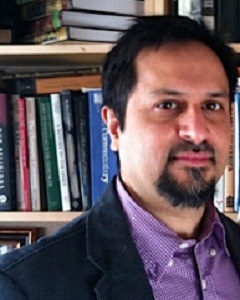Theodicy or the “Problem of Evil” is often presented, in theological terms, as the consequence of ascribing three attributes to God: Omnipotence (that He is “all powerful”), Omniscience (that He is “all knowing”), and Goodness. How can we account for the existence of evil while simultaneously affirm these attributes? The lecture will explore this question from the unique vantage of a thinker who, in line with much of the Sufi tradition, sees the presence of evil and also human suffering as necessary elements in the economy of human existence, and essential for final human liberation.

Dr. Atif Khalil is an Associate Professor at the University of Lethbridge's Department of Religious Studies where he teaches courses on Islamic theology, mysticism, art and world religions. His main area of research lies in Sufi thought, with secondary interests in comparative mysticism, inter-religious relations and medieval philosophy. His articles have appeared in Studies in Religion, the Journal of Islam & Christian-Muslim Relations, Sacred Web, the Oxford Journal of Islamic Studies, Philosophy East and West, and the Muslim World. He is also the author of the forthcoming book, Repentance and the Return to God in Early Sufism. In the summer of 2016, he is scheduled to hold the Ken'an Rifai Distinguished Professorship of Islamic Studies at the Institute for Advanced Humanistic Studies at Peking University in China.